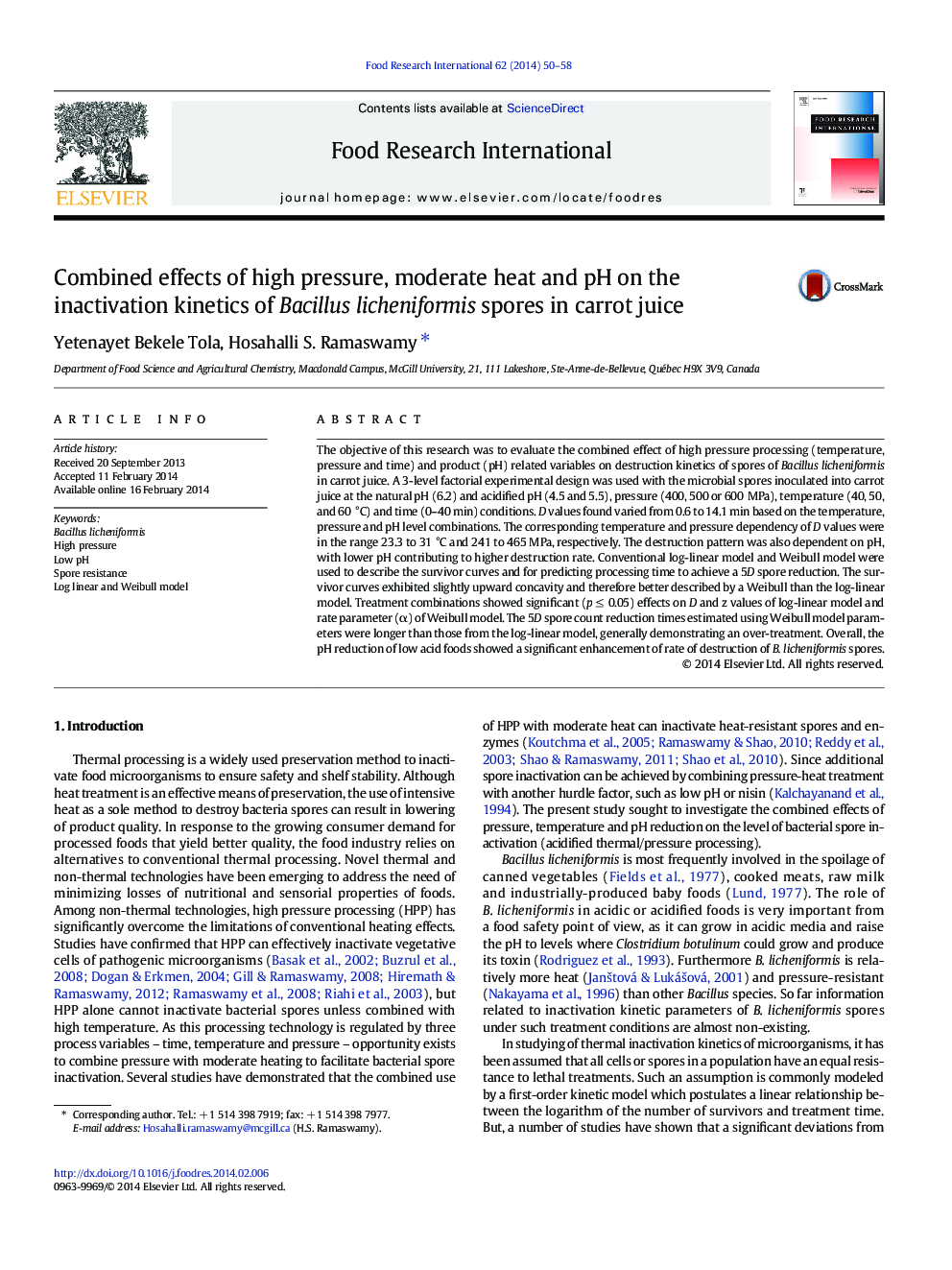| Article ID | Journal | Published Year | Pages | File Type |
|---|---|---|---|---|
| 6395742 | Food Research International | 2014 | 9 Pages |
â¢Acidified thermal processing offers energy saving potential.â¢Bacillus licheniformis is a useful surrogate for acidified thermal processing.â¢Destruction kinetics on Bacillus licheniformis key in acidified thermal processingâ¢Sensitivity of Bacillus licheniformis spores to HP, pH and temperature demonstratedâ¢Common microbial destruction models evaluated and compared
The objective of this research was to evaluate the combined effect of high pressure processing (temperature, pressure and time) and product (pH) related variables on destruction kinetics of spores of Bacillus licheniformis in carrot juice. A 3-level factorial experimental design was used with the microbial spores inoculated into carrot juice at the natural pH (6.2) and acidified pH (4.5 and 5.5), pressure (400, 500 or 600 MPa), temperature (40, 50, and 60 °C) and time (0-40 min) conditions. D values found varied from 0.6 to 14.1 min based on the temperature, pressure and pH level combinations. The corresponding temperature and pressure dependency of D values were in the range 23.3 to 31 °C and 241 to 465 MPa, respectively. The destruction pattern was also dependent on pH, with lower pH contributing to higher destruction rate. Conventional log-linear model and Weibull model were used to describe the survivor curves and for predicting processing time to achieve a 5D spore reduction. The survivor curves exhibited slightly upward concavity and therefore better described by a Weibull than the log-linear model. Treatment combinations showed significant (p â¤Â 0.05) effects on D and z values of log-linear model and rate parameter (α) of Weibull model. The 5D spore count reduction times estimated using Weibull model parameters were longer than those from the log-linear model, generally demonstrating an over-treatment. Overall, the pH reduction of low acid foods showed a significant enhancement of rate of destruction of B. licheniformis spores.
